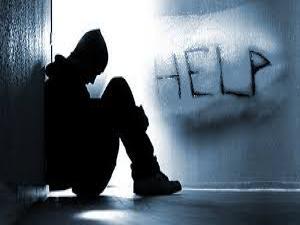
By Michael McHugh, Press Association
The number of police incidents caused by mental health crises has doubled, an audit office report said.
Northern Ireland's justice system is increasingly being used as a service of last resort for those affected, the public spending watchdog revealed.
The total has gone from 9,000 in 2013 to more than 20,000 a year currently and frequently does not involve a criminal offence.
It reflects a trend of increasing demands placed upon officers as well as the PSNI becoming better at recording such incidents, the investigation said.
Auditor and comptroller general Kieran Donnelly has been speaking to Q Radio:
He continued: "Justice organisations are increasingly working with individuals with mental health issues who have fallen between the gaps in wider public service.
"While the justice system is pursuing a range of reform measures to meet this challenge, the evidence to date suggests that more effective co-ordination is required between justice agencies and other key services, particularly health, education and housing services."
The report stated that sometimes police respond to an incident where an individual is exhibiting behaviour suggestive of mental health problems, to the extent that they are perceived to be a risk to themselves or others.
Such events frequently do not involve a criminal offence.
The expectation of those reporting the incident is that police will be able to manage and resolve the situation, the audit office said.
It stated: "Typically, the outcome is that officers either detain the person and bring them for appropriate medical attention or convince them to seek attention voluntarily.
"The recorded number of such incidents has steadily increased from 9,000 in 2013 to over 20,000 per year."
The audit office said: "These calls can impose significant operational demands upon the PSNI, often taking up to half an hour to resolve, imposing greater demands on the call management system.
"Responding officers can often be involved for between 18 and 30 hours, reducing the PSNI's operational capacity for that duration."
Each year officers arrest more than 20,000 people for interview.
They are assessed to consider whether their safety may be under threat while in custody.
Two-thirds of those detained are identified as having a mental health or potential mental health issue.
When the PSNI interviews someone identified as mentally vulnerable, that person is provided with an appropriate adult, who gives support to the individual in custody and while being interviewed.
Mr Donnelly's recommendations include stronger cross-departmental leadership and better recording of mental health issues.
PSNI assistant chief constable Mark Hamilton said the operating context for the force was changing significantly.
"Police increasingly find themselves the first point of contact for those in mental health crisis and receive approximately 1,600 calls per month with a mental health component.
"The situation is challenging. PSNI officers and staff are not mental health experts but often find themselves first on the scene when a person is in crisis.
"We have a mental health strategy and action plan in place and are working with a range of statutory and voluntary partners to ensure that those in contact with the police will be dealt with in the best and most appropriate way possible.
"We are involved in a number of transformational programmes of work which are reviewed on a regular basis for example, multi agency triage team, support hubs which provide early intervention for vulnerable individuals and transformation of healthcare in custody.
"We will continue to work with our partner agencies across the public sector to understand demand, improve collaborative working and play our part in developing early interventions, so that police do not become the agency of first resort when a person is in mental health crisis."


 Watchdog identifies series of failings in investigation of Kingsmill Massacre
Watchdog identifies series of failings in investigation of Kingsmill Massacre
 Kneecap at Glastonbury ‘a matter for organisers’ says Cooper
Kneecap at Glastonbury ‘a matter for organisers’ says Cooper
 Plaque unveiled for 1890s champion teen golfer at Royal Portrush
Plaque unveiled for 1890s champion teen golfer at Royal Portrush
 Human remains taken from Hawaiian burial caves repatriated from Northern Ireland
Human remains taken from Hawaiian burial caves repatriated from Northern Ireland
 Kneecap says footage has been ‘exploited and weaponised’ over dead Tory comment
Kneecap says footage has been ‘exploited and weaponised’ over dead Tory comment